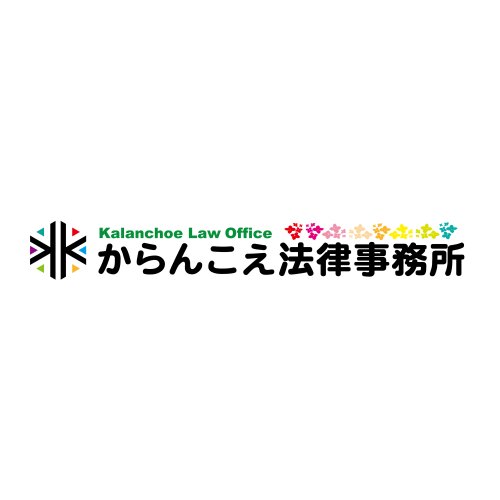Best Criminal Defense Lawyers in Sendai
Share your needs with us, get contacted by law firms.
Free. Takes 2 min.
List of the best lawyers in Sendai, Japan
About Criminal Defense Law in Sendai, Japan
Criminal defense law in Sendai operates under the larger Japanese criminal justice system. Sendai, as the capital of Miyagi Prefecture, follows the national Penal Code and Code of Criminal Procedure. Criminal cases in Sendai range from minor offenses to serious crimes. The process typically involves investigation, possible arrest, detention, indictment, trial, and, if convicted, sentencing. Throughout these stages, both the rights of the accused and the integrity of the investigation are protected under Japanese law. It is essential for anyone facing criminal charges to understand their rights and the local legal procedures.
Why You May Need a Lawyer
There are several situations in which you may need a criminal defense lawyer in Sendai. These include being accused of theft, assault, drug offenses, white-collar crimes such as fraud, or involvement in traffic accidents causing injury or death. Even being called in for police questioning as a suspect can make legal support necessary. Lawyers can protect your rights during interrogation, help you understand the charges, gather evidence in your favor, negotiate bail, and represent you in court. They also assist foreigners who may face language and cultural barriers within the Japanese legal system.
Local Laws Overview
Criminal defense in Sendai is governed by the national Penal Code and Code of Criminal Procedure, but local law enforcement practices and the Sendai District Court’s procedures can affect how cases progress. Key aspects include:
- Police can detain suspects for up to 23 days before indictment, during which legal assistance is highly recommended.
- Prosecutors in Japan have significant discretion in pursuing charges, and a high conviction rate means strong defense is vital.
- Confessions, sometimes made under pressure, carry significant weight in court but must be obtained lawfully.
- Legal aid is available for those who cannot afford private lawyers.
- Foreign nationals face additional challenges, such as needing interpretation and understanding immigration implications.
Frequently Asked Questions
What should I do if I am arrested in Sendai?
You should remain calm, request to speak with a lawyer as soon as possible, and avoid making statements to the police before consulting legal counsel.
How long can police detain me before I am formally charged?
After initial arrest, police can detain you for up to 72 hours. If prosecutors request further detention, you may be held for up to 23 days total before being formally charged or released.
Can I have a lawyer present during police questioning?
You do not have the right for a lawyer to be physically present during interrogation, but you can consult with a lawyer before and after questioning. Your lawyer can advise you on how to respond.
What if I cannot afford a lawyer?
Legal aid (hotei bengoshi) may be available for those who qualify based on income. The court can appoint a lawyer to represent you at various stages.
Will my case be heard by a jury?
Japan uses the lay judge (saiban-in) system for certain serious criminal cases, where citizen judges participate with professional judges. Many minor cases are judged by professional judges only.
Are confessions made to police always valid?
No. Confessions must be made voluntarily. If a confession is obtained through coercion or unlawful means, it may be challenged in court.
How long do criminal trials usually take in Sendai?
It varies by case, but many criminal cases proceed quickly, with trials concluded in a matter of months. More complex or serious cases may take longer.
What are the possible outcomes if I am convicted?
Penalties range from fines and suspended sentences to imprisonment, depending on the offense. Suspended sentences are common for first-time or minor offenders.
Can foreigners get a fair trial in Sendai?
Yes, but it is important for foreigners to secure legal counsel with experience in handling cases involving non-native Japanese speakers and to use interpreters when needed.
Is it possible to appeal a conviction?
Yes, both the defense and prosecution can appeal a district court verdict within prescribed time limits if there are grounds such as legal error or new evidence.
Additional Resources
Several resources are available to anyone involved in or concerned about criminal defense matters in Sendai:
- Miyagi Bar Association (Miyagi Bengoshi Kai): Provides lawyer referrals and consultation services.
- Japan Legal Support Center (Houterasu): Offers legal information, guidance, and access to legal aid.
- Sendai District Court: For information regarding court proceedings and case status.
- Sendai City Legal Affairs Bureau: Offers guidance on legal procedures and documentation.
- Local police stations: Can provide assistance about procedural matters and detainees’ status.
- Consulates or embassies: Support for foreign nationals facing criminal proceedings.
Next Steps
If you or someone you know is facing criminal charges in Sendai, or if you have been contacted by law enforcement for questioning, it is important to seek legal advice as soon as possible. Start by consulting with a local criminal defense lawyer experienced in dealing with both Japanese nationals and foreigners. Prepare any relevant documents, such as identification and details of the incident. Do not discuss your case with anyone except your lawyer. If you cannot afford legal representation, ask for information about court-appointed lawyers or legal aid services. Taking prompt and informed action increases your chances of a favorable outcome and ensures your rights are protected throughout the legal process.
Lawzana helps you find the best lawyers and law firms in Sendai through a curated and pre-screened list of qualified legal professionals. Our platform offers rankings and detailed profiles of attorneys and law firms, allowing you to compare based on practice areas, including Criminal Defense, experience, and client feedback.
Each profile includes a description of the firm's areas of practice, client reviews, team members and partners, year of establishment, spoken languages, office locations, contact information, social media presence, and any published articles or resources. Most firms on our platform speak English and are experienced in both local and international legal matters.
Get a quote from top-rated law firms in Sendai, Japan — quickly, securely, and without unnecessary hassle.
Disclaimer:
The information provided on this page is for general informational purposes only and does not constitute legal advice. While we strive to ensure the accuracy and relevance of the content, legal information may change over time, and interpretations of the law can vary. You should always consult with a qualified legal professional for advice specific to your situation.
We disclaim all liability for actions taken or not taken based on the content of this page. If you believe any information is incorrect or outdated, please contact us, and we will review and update it where appropriate.
Browse criminal defense law firms by service in Sendai, Japan
Sendai, Japan Attorneys in related practice areas.









